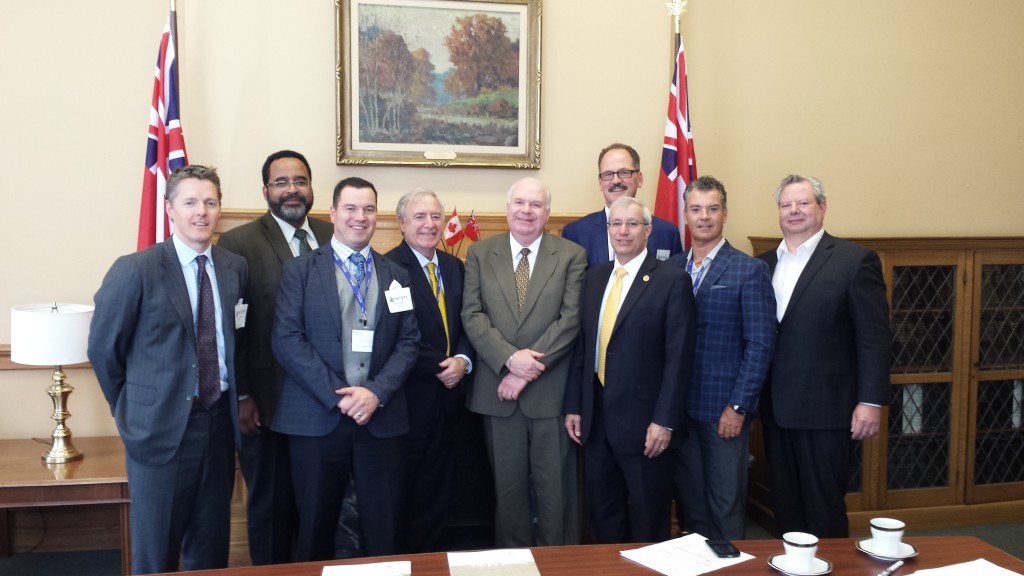
(L-R) Vice-Chair CALU Roger Thorpe, Al Jones PAC, 2nd VP Simcoe-Muskoka Chapter Richard Tremblay, TFAAC Chair David Juvet, MPP Jim Wilson, Advocis Simcoe-Muskoka Chapter President Raymond Matt, MPP Vic Fedeli, Advocis member Bruce Boivin, Advocis Simcoe-Muskoka Chapter Membership Chair Jeff Schreiter pose for a picture during their visit to Queen’s Park on May 13, 2015.
It was yet another successful day for Advocis’ Simcoe-Muskoka Chapter during our visit to Ontario’s legislative assembly Queen’s Park for the 10th annual Queen’s Park Day. More than 75 Advocis members of the nearly 110-year-old professional association were present to personally meet with over 43 MPP’s and discuss issues of importance to Canadian consumers of financial services.
Advocis believes strongly in the value of professional financial advice, along with the availability of that advice, for all Ontario consumers, regardless of their economic status; the need to raise the professional bar so Ontario consumers feel assured that the financial advice given is in their best interest, and to assure access and choice to every Ontario consumer. We are pleased that so many of our provincial legislators were willing to take the time to meet with us and develop a broader understanding of these important issues as we work towards regulatory reform to protect Ontario consumers.
One issue being encouraged by Advocis Simcoe-Muskoka Chapter President, Raymond Matt, is the requirement for all those that hold themselves out as financial advisor be required to belong to a professional association that has a code of professional conduct. Advocis’ code requires, among other things, that its members act with integrity, competency and diligently. Currently in Canada, anyone, regardless of education or experience, can call themselves a financial advisor and there is no requirement to belong to a professional association. Advocis wants to change this by raising the professional bar.
Visit Advocis website here.